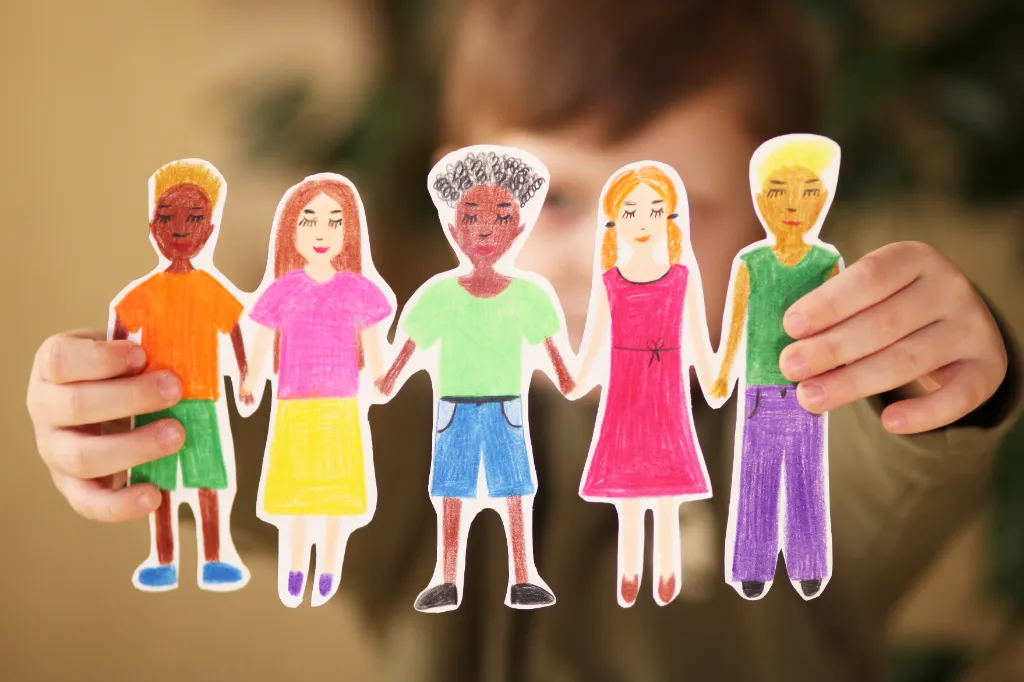Definition of Neurodiversity
Neurodiversity is the concept that human brains and minds naturally vary and that differences in neurocognitive functioning are part of normal human diversity rather than solely deficits to be fixed. The term was coined in the 1990s by sociologist Judy Singer to describe natural variation in cognition and to support a social-movement perspective that frames cognitive differences as part of human diversity rather than pathology. This has led to many resources being developed for understanding neurodiversity.
Neurodiversity is an umbrella that commonly includes, but is not limited to, autism, attention deficit hyperactivity disorder (ADHD), dyslexia, dyspraxia, dyscalculia, and other variations in thinking, learning, sensory processing, including sensory processing disorders, communication, and executive function.
Legal and Policy Context in the UK
Neurodivergent conditions commonly fall under the scope of the Equality Act 2010 when they meet the Act’s definition of disability (i.e., substantial and long-term adverse effect on normal day-to-day activities). Employers, education providers and public bodies must consider reasonable adjustments and protect people from discrimination.
UK public bodies produce neurodiversity guidance and policies to help with inclusion, adjustments, and fair processes, often accompanied by additional resources (for example, the gov.uk/external guidance document on neurodiversity and organisation practices). These set out definitions, reasonable adjustments, and ways panels/decision-making bodies should treat neurodivergent people fairly.
To create environments where supported people and their families thrive, achieve their potential and know their legal rights, and help care professionals to excel in their responsibilities under the legal Acts more effectively, we have created a brief overview of the Equality Act 2010.
The Importance of Understanding Children’s Diverse Abilities
Each child has unique strengths but also faces unique challenges in everyday life. Recognising these differences allows educators, teachers, and family members to find teaching techniques and support systems tailored to the needs of every child in a different way.

Neurodivergent children often demonstrate unique strengths and skills in different areas, including:
- Focus and Attention – Intense focus on interests, pattern recognition, detail-oriented thinking
- Memory – Exceptional memory for facts, visual information, or sequences
- Creativity – Original problem-solving, innovative thinking, artistic skills
- Empathy and Perspective – Deep empathy in some contexts, seeing situations differently, which can lead to creative solutions
- Sensory Awareness – Heightened perception enhances artistic, musical, or technical abilities.
UK education policies emphasise inclusion and reasonable adjustments for neurodivergent children:
- Education, Health and Care Plans (EHCPs): legally support children with educational needs, outlining specific accommodations.
- Teachers and schools are encouraged to use strengths-based approaches, adapting learning to match each child’s abilities rather than focusing solely on deficits.
Difference Between Neurodivergent and Neurotypical Children
Neurodivergent children: Children whose brain development or functioning differs from the majority. This can affect learning, behaviour, attention, social interaction, and sensory processing for each autistic person. Examples include children with autism, ADHD, dyslexia, dyspraxia, dyscalculia, and Tourette’s syndrome.
Neurotypical children: Explaining the term “neurotypical” can be challenging, but it means that someone’s brain develops in a way society is most familiar with. On the other hand, “neurodivergent” children’s brain works differently from neurotypical people, often showing differences in behaviours and development. People tend to categorise others rather than focus on helping them thrive and being understanding.
Common Neurodivergent Conditions in Children
1 in 7 children have variations in brain development, but neurodiversity is not a medical diagnosis. Neurodivergent differences in children describe commonly recurring ways of thinking, learning, moving, sensing, communicating, and regulating attention and behaviour that differ from the predominant neurotype, including mental health challenges.
The most common differences that children experience are:
- Uneven cognitive profiles with relative strengths, such as pattern recognition
- Visual or spatial thinking
- Intense focus on preferred interests
- Problem-solving in specific domains
- Creative or systematic thinking
Some people with mental health conditions, such as social anxiety disorder and obsessive-compulsive disorder, may also identify as neurodivergent. Due to differences in brain functioning, it can be challenging for children, including autistic and non autistic people, to develop social relationships and participate in group activities. Children also often have co-occurring challenges with sensory processing. As a society, we must recognise and provide support to neurodivergent individuals. We can contribute to developing a safer environment by catering to their unique needs, strengths and abilities.
Positive Aspects of Neurodiversity
Neurodiversity carries plenty of positive aspects and benefits that contribute to the rich diversity in our society. Children with neurodivergent traits often possess:
- Exceptional problem-solving skills
- A strong eye for detail
- Enhanced creativity
- Pattern recognition and analytical skills
- Memory skills
- Emotional sensitivity and empathy
These traits can help them lead innovation and make breakthroughs across many fields. Their unconventional approach to challenges and problems inspires creative solutions and promotes a culture of diversity, which empowers people to contribute to society and an overall benefit for humanity.

Celebrating the wide spectrum of neurological differences in neurodivergent people fosters a deep understanding of people’s unique experiences and perspectives. By embracing neurodiversity, we can collectively open the gate towards an accepting world where every individual is seen as worthy and is recognised and cherished.
Unique Strengths of Neurodiversity
Among the many strengths neurodivergent children have, they also have the increased ability to think outside the box and see things from different perspectives. Their unique thought process allows children to look beyond the standard perspectives and provides an alternative view on solving problems and challenges. Neurodivergent children develop creative ideas that challenge the norm and lead society to grow and expand.
Neurodivergent students also have vivid imaginations and possess a strong level of creativity, which helps them create ideas and solutions that are truly unique.
Highlighting the Creativity and Innovation
Neurodiversity enriches society with fresh perspectives, creativity, and innovation. By embracing these differences, families, educators, and employers can help transform what might be seen as challenges for young people into sources of progress and inspiration. Neurodivergent people have their way of delivering solutions and innovation that others might not think of. Their attention to detail and exceptional analytic skills have significantly impacted mathematics, science and technology. There have been many breakthroughs under neurodiversity, as it brings a sense of brilliance to the world.
Supporting Neurodivergent Children
Supporting neurodivergent children is all about embracing their unique strengths and abilities. Supporting neurodiversity means understanding and guiding society towards actively listening and learning people’s different perspectives. Their incredible young minds see the world differently, with kindness, empathy and patience, which is why we need to focus on creating a safe space for them to allow them to thrive. Celebrating children’s achievements and providing tailored support helps them confidently navigate through life.
Advocacy and Awareness
Advocacy in the context of neurodiversity means supporting and amplifying the voices of neurodivergent people to ensure they are heard, respected, and included in decisions that affect their lives.
Advocacy focuses on:
- Building community and allyship. Supporting families, educators, and professionals to challenge stigma and discrimination
- Promoting equal rights and opportunities under the Equality Act 2010
- Ensuring reasonable adjustments in education, health, and employment
- Encouraging self-advocacy, where neurodivergent children and adults express their own needs and preferences
Creating Inclusive and Supportive Environments
Inclusive environments recognise that children learn, communicate, and experience the world in their own unique way. Inclusion is a legal and moral duty, supported by the Equality Act 2010 and the SEND Code of Practice. Care providers, local authorities, and schools must follow these frameworks for every child to thrive socially, emotionally, and academically.
In care and community settings, there are multiple ways to include inclusive practices, such as:
- After-school clubs and libraries provide “quiet hours” and sensory zones for children who need low-stimulation environments.
- Neurodiversity-friendly waiting rooms that feature sensory tools, calm colours, and visual signage to ease anxiety.
- Play therapy spaces allow self-expression through art and movement, reducing distress for autistic children.
Nurturing Self-Esteem and Self-Acceptance
For neurodivergent children, who may face misunderstanding or pressure to “fit in,” developing positive self-esteem and self-acceptance is essential for resilience and mental health. Children who feel accepted for who they are can better manage challenges, form healthy relationships, and reach their potential.
There are some practical ways to build self-esteem and self-acceptance:
- Keep a “strengths journal” together: write or draw things they enjoy or succeed at.
- Use praise that highlights effort and uniqueness, not just outcomes (“I love how you tried a new approach” rather than “You got it right”).
- Involve them in decisions about their learning plans, routines, or sensory supports.
- Use visual supports (timetables, emotion cards) to reduce anxiety.
- Offer sensory-friendly zones at home or school.
- Ensure trusted adults respond with understanding rather than punishment when the child becomes overwhelmed.
- Join inclusive art groups, drama clubs, or community programmes for neurodiverse children.
Educating Peers about Neurodiversity
Educating children and young people about neurodiversity helps to build empathy, reduce stigma, and foster genuine inclusion in schools and communities. When peers understand that everyone’s brain works differently and that those differences bring unique strengths, they are more likely to show kindness and respect.
Peer education on neurodiversity should help children to:
- Recognise that everyone’s brain processes information differently.
- Understand that neurodivergent behaviours are natural variations, not “wrong” or “bad.”
- Appreciate different strengths: creativity, problem-solving, and attention to detail.
- Develop empathy and inclusive social habits.
- Learn ways to communicate and collaborate with neurodivergent classmates respectfully.
Unique Community Services Supports Neurodivergent Children
At Unique Community Services, we develop comprehensive care plans and humanised approaches to tailoring our care to the specific needs of each person we serve.
Our support workers and clinical teams provide personalised support for neurodivergent children by recognising their challenges and focusing on their strengths. Our Positive Behaviour Support practices foster an inclusive environment and encourage holistic support for the people we support.
Meet Elliot
Elliot faced many restrictions while staying in the hospital, and his behaviour started escalating. In his most challenging days, Unique Community Services supported Elliot to reduce challenges, leave hospital after spending 4 years, and start living in his own home.
How can a person’s life change when specialist community support replaces years of hospital restrictions? Watch here.
Our highly trained teams deliver proactive care and support across the UK with offices in Leeds and Manchester.
For more information, contact us today!
